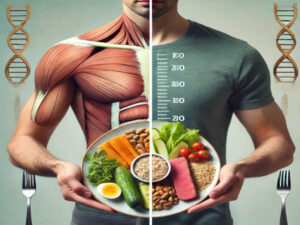Healthy eating is the foundation of a vibrant and energetic life. It involves consuming various nutritious foods that provide essential nutrients to keep your body functioning optimally. Whether you want to feel more energized, boost your immunity, or improve your overall well-being, healthy eating plays a vital role. In this blog post, we’ll explore the top 7 benefits of healthy eating and why it should be a priority in your daily routine.
Healthy eating is one of the simplest yet most powerful ways to improve your overall well-being. By choosing nutritious foods packed with essential vitamins, minerals, and antioxidants, you can fuel your body, boost energy levels, and feel your best every day.
In this article, we will explore the top 7 benefits of healthy eating and why it’s so important for your mind, body, and long-term health. Whether you’re starting your journey or looking for motivation to stay on track, these benefits will inspire you to make smarter food choices.
Table of Contents
1. Boosts Energy Levels

One of the most immediate benefits of healthy eating is increased energy levels. The food you eat acts as fuel for your body, and choosing nutrient-dense options ensures that you have the energy to stay active and productive throughout the day.
Whole foods like fruits, vegetables, whole grains, and lean proteins provide consistent energy. Unlike processed or sugary foods, which quickly rise in energy followed by a crash, fiber-rich foods stabilize your blood sugar, helping you avoid fatigue
For example, complex carbohydrates like oats, brown rice, and quinoa are good sources of slow-release energy. Adding healthy fats from avocados, nuts, and seeds can boost your energy levels. Pair these with lean proteins like fish, poultry, and legumes to keep your body fueled longer.
Hydration is also a key part of healthy eating. Drinking enough water alongside your nutritious meals helps your body function efficiently, preventing tiredness caused by dehydration.
By focusing on healthy eating, you can say goodbye to sluggish afternoons and enjoy consistent energy throughout your day.
2. Supports Weight Management

Healthy eating plays a vital role in achieving and maintaining a healthy weight. By focusing on nutrient-dense foods like fruits, vegetables, whole grains, and lean proteins, you can nourish your body without consuming excess calories. Unlike processed foods that are high in sugar and unhealthy fats, whole foods help you feel full and satisfied, reducing the urge to overeat.
Adding fiber-rich foods like vegetables, fruits, and whole grains helps your weight management by digesting food better and keeping you full longer Also lean proteins like chicken, fish, and tofu help prevent hunger while supporting muscle control and fat loss.
Portion control is another key part of healthy eating. Paying attention to serving sizes and balancing your meals ensures that you’re eating just the right amount to meet your energy needs without excess
In addition, it is about making healthy eating a more sustainable option. It’s not about a quick meal fix but about creating habits that allow you to enjoy a variety of healthy foods when you reach your goal weight.
3. Strengthens the Immune System
One of the most important benefits of healthy eating is its ability to strengthen your immune system. The immune system relies on essential nutrients to function properly, and a diet rich in vitamins, minerals, and antioxidants helps your body fight off illnesses and infections.
Fruits such as figs, strawberries, and kiwis are packed with vitamin C, which is a key nutrient for the immune system. Vegetables like spinach, broccoli, and bell peppers are good sources of vitamins A, C, and E, all of which support a strong immune system. Adding zinc-rich foods like nuts, seeds,s, and lean meats further boosts the immune system.
Healthy fats from foods like avocados, salmon, and olive oil reduce inflammation and support overall immune health. Additionally, probiotic-rich foods such as yogurt, kefir, and fermented vegetables improve gut health, which is closely linked to a stronger immune system.
By prioritizing healthy eating, you provide your body with the tools it needs to stay strong, fight infections, and recover faster.
4. Improves Heart Health

Healthy eating is directly linked to a healthier heart. Consuming nutrient-rich foods helps lower cholesterol, reduce blood pressure, and prevent heart disease.
- Heart-healthy foods include: Fatty fish (salmon, mackerel), avocados, nuts, and olive oil.
- Reducing salt and processed food intake can help maintain optimal blood pressure levels.
Adopting a healthy diet reduces the risk of cardiovascular diseases and supports long-term heart health.
5. Enhances Mental Clarity and Focus
One of the often-overlooked benefits of healthy eating is its ability to enhance mental clarity and focus. What you eat has a direct impact on brain function, and a diet rich in the right nutrients can significantly improve cognitive performance, concentration, and overall mental well-being.
Foods high in omega-3 fatty acids, such as oily fish (salmon, mackerel, and sardines), nuts, and seeds are particularly beneficial for brain health These healthy fats support brain cell structure and provide connections between brain cells, improving cognitive function. Similarly, antioxidant foods like nuts, greens, and dark chocolate protect the brain from oxidative stress and inflammation, which can damage cognition
By prioritizing healthy eating, you provide your brain with the necessary nutrients to function at its best. This results in improved memory, sharper focus, and greater mental clarity, all of which can boost productivity and overall cognitive performance.
6. Promotes Better Digestion
One of the key benefits of healthy eating is improved digestion. The foods you choose can significantly impact how efficiently your digestive system works, and a nutrient-rich diet helps ensure that your gut is functioning optimally.
Fiber is one of the most important components of a digestion-friendly diet. High-fiber foods like whole grains, fruits, vegetables, and legumes help to keep things moving in the digestive tract. Fiber adds bulk to your stool, preventing constipation and promoting regular bowel movements. It also supports the growth of healthy gut bacteria, which are essential for optimal digestion.
In addition to fiber, a healthy diet includes foods high in probiotics, such as yogurt, kefir, sauerkraut, and kimchi. Probiotics help maintain a balanced gut microbiome, support digestion, and reduce bloating, gas, and discomfort. Herbs like ginger, peppermint, and fennel can also help soothe digestion and prevent indigestion.
By focusing on healthy eating, you can enhance your digestive health, reduce discomfort, and promote a smoother, more efficient digestive process. A balanced diet with fiber-rich, probiotic-packed foods not only supports digestion but also contributes to your overall well-being.
7. Reduces the Risk of Chronic Diseases

Healthy eating is one of the most effective ways to reduce the risk of chronic diseases such as heart disease, diabetes, and certain types of cancer. By choosing nutrient-dense, whole foods over processed and sugary options, you can protect your body and promote long-term health.
A diet high in fruits, vegetables, whole grains, and healthy fats supports heart health by reducing bad cholesterol, controlling blood pressure, and preventing inflammation For example, foods such as green leafy vegetables, avocados, nuts, and oily fish need omega-3 fatty acids and antioxidants Provide nutrition, which helps create you heart protection
When it comes to type 2 diabetes, healthy eating helps regulate blood sugar levels. Whole foods with a low glycemic index, such as legumes, whole grains, and non-starchy vegetables, prevent sudden sugar spikes and support insulin sensitivity.
Additionally, antioxidants found in berries, citrus fruits, and cruciferous vegetables help fight free radicals, reducing cell damage that can lead to certain cancers. Maintaining a balanced diet also lowers the risk of obesity, a major factor contributing to chronic diseases.
By focusing on healthy eating, you are not just improving your daily well-being but also safeguarding your future health. Small, consistent changes in your diet can have a big impact over time.
Here’s a three-paragraph conclusion that ties everything together while naturally using the focus keyword Healthy Eating:
Conclusion
Incorporating healthy eating into your daily life is one of the best decisions you can make for your overall well-being. From boosting energy levels and managing weight to strengthening your immune system and reducing the risk of chronic diseases, the benefits are undeniable. By choosing nutrient-dense, whole foods over processed alternatives, you’re giving your body the essential fuel it needs to thrive.
Healthy eating is not about strict diets or deprivation—it’s about balance, variety, and sustainable habits. Small changes like adding more fruits, vegetables, whole grains, and lean proteins to your meals can lead to long-term positive results. Pairing these dietary choices with hydration and an active lifestyle can further enhance your health and quality of life.
Remember, the journey to better health starts with a single step. Prioritize healthy eating every day, and you’ll soon experience its transformative effects on your mind, body, and future. It’s not just about living longer; it’s about living better. Start making mindful food choices today, and enjoy the countless benefits they bring!




